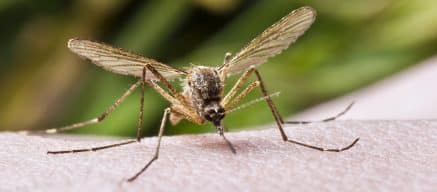Scrub typhus, also known as bush typhus, is a bacterial disease that is spread to people through bites of infected chiggers (larval mites). Common symptoms include fever, headache, body aches, and sometimes rash. It can usually be treated with antibiotics, however people with severe illness may develop organ failure and bleeding, which can be fatal if left untreated.


Travel Vaccinations for Thailand
Recommended Vaccines for Thailand
The level of protection needed depends on your medical history and travel itinerary. Book now to get a personalised recommendation from our specialist travel nurses. The consultation costs £20 plus any vaccines you decide to take.
Flexible appointments with no upfront payment
Book Now
Destination Information for Thailand
The Thai capital city of Bangkok is a mixture of miles and miles of street stalls, colourful markets, skyscrapers and historical temples. Thailand itself has beautiful sandy beaches, excellent nightlife, great shopping facilities and amazing food. With the sun shining all year round, you will be spoilt for choice regarding the best time of year to visit Thailand. If you like a bit of a breeze, Thailand is the perfect place thanks to the monsoons from November to February, with temperatures of 25-30°C degrees in Bangkok. March to June is the dry season and can be very hot – temperatures usually hit 35-40°C degrees.
When visiting Thailand, many people opt to enjoy the beautiful white sandy beaches with crystal clear waters, perfect for relaxing and soaking up the sun. The sea is lovely and warm, ideal for a spot of swimming. In addition to the beaches, there are Buddhist temples, National Parks, rivers and breathtaking waterfalls to visit.
Phuket Island is one of the most popular islands to explore – you can wander the market stalls, have a bite to eat in the restaurants or a relaxing drink in a bar. If that isn’t enough, the nightlife is amazing!
Bangkok is home to many monuments, cultural attractions and museums, as well as boutiques, shops and market stalls. Visit the Temple of the Emerald Buddha, the Grand Palace or, for amazing views, climb the Golden Mount.
Whether your adventures in Thailand take you to remote islands or bustling cities, it is important you stay safe from diseases. All visitors to the country should have been administered with the hepatitis A and diphtheria, tetanus, and polio vaccines before travel. You may need additional travel vaccinations, such as rabies, Japanese encephalitis and Hepatitis B, so head to a travel clinic for a consultation.
Infections and Outbreaks frequently change from country to country and by attending our clinics you will be given the most up to date clinical and safety advice from our team of specialists. Our advice to you often includes aspects such as:
Non Vaccinated Diseases
Additional Health Risks Information for Thailand
Thailand is a popular destination for travellers of all ages, particularly with the younger generation as part of gap years. While most visits to Thailand are trouble-free, there are certain precautions you should take to ensure a safe trip.
One issue you may encounter while travelling in Thailand may be travelling itself. There are a high number of road accidents each year, especially involving scooters or motorbikes. Many of the accidents are due to poor vehicle standards and driver ability. If you’re planning to hire a car or motorbike, make sure that it has undergone proper maintenance, is registered correctly and that your insurance covers you to drive on the roads in Thailand.
Crime rates in areas of Thailand are high, with tourists being particularly vulnerable to incidences of theft, pickpocketing and scams. Keep your wits about you, stay in a group if possible and avoid travelling after dark. If you are drinking, don’t leave your drink unattended and be cautious of accepting drinks from strangers.
The penalty for breaking the law in Thailand, particularly for drug-related offences, is extremely severe and can include long prison sentences – sometimes even the death penalty.
Be particularly aware of avoiding animals as rabies is prevalent. Mosquito-borne diseases like dengue fever and the Zika virus are present, use 50% DEET insect repellant over your sunscreen during the day to prevent mosquito bites. Japanese encephalitis is rife, so visit your local travel clinic before you depart to get the vaccinations you need for Thailand. If you are pregnant or planning to become pregnant, it is not advisable to visit Thailand.
If you’re visiting to take part in adventure sports, ensure that your travel insurance covers you for the specific activity you are planning. Take extra care when swimming, due to strong tides and jellyfish. Private hospitals in Thailand can be excellent, but public facilities do not have such high standards.
Latest Thailand Articles
Thailand: Avoid the world’s deadliest creature!
So what is the world’s deadliest creature? The shark? The snake? The crocodile? Wrong! The world’s deadliest creature by far is the mosquito! These insects are vectors for many deadly diseases. There are vaccines available for some of these diseases, but sadly not all – …




